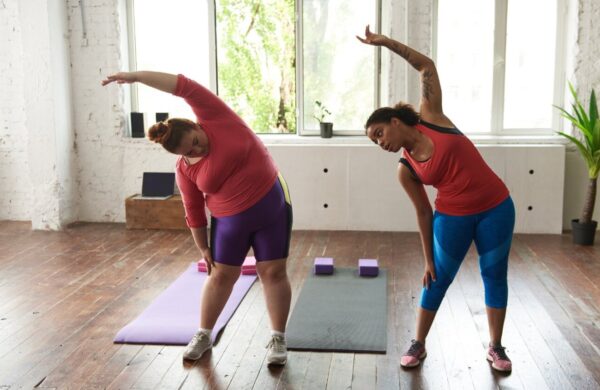
Creating Inclusive Spaces For Women To Be Physically Active
How can we create inclusive environments for women?

Date: 8 March 2024 Author: Energise Me
How can adults support young people to use their voices to effect change? The recent Play Their Way campaign focuses on voice, choice and journey. Combined, these influenced the Change Champions programme.
With so many teenage girls not engaging in PE or extra-curricular clubs, we are passionate about encouraging schools to think about how we can meet the needs of girls in schools.
We developed the Change Champions programme to support young girls to effectively communicate what challenges they were facing and how these could be overcome to create an environment that supported them to be physically active.
Based on local insight, we identified ten secondary schools with the highest rates of physical inactivity among teenage girls and invited them to be a part of the programme.
In the first year, we delivered Change Champions to three schools, working with 46 girls across Years 8,9 and 10. Each took part in 3 workshops:
At the start of each session, girls established a code of conduct that would create a safe and accountable space. It was also important to remind the groups that everybody’s opinions and experiences were valid.
Though the theme of each session was consistent across schools, activities were adapted to suit the needs and interests of the girls. Each workshop was also changed, either when feedback was given or when we identified moments where girls became disengaged. Flexibility was key.
Once the action plans had been shared by the girls, we worked closely with the teachers to identify which changes were possible. We also considered the time frame that would be needed to implement some of the girls’ suggestions. Next steps and the resources, funding and support required for the changes to be made were agreed within PE departments (and sometimes senior management teams), facilitated by us.
Updates were sent to keep the girls informed and highlight how their voices were effecting change in their schools. This crucial final stage of the programme showed the girls that their ideas had been listened to so that they would be confident in the future advocating for change.
Given that our aim was to amplify young people’s voice, we were delighted to find that 88 per cent of girls told us they felt listened to in the workshops and that they felt “their opinion matters.” Furthermore, 87 per cent of the girls positively reported that the activities in the workshops helped them to engage in the conversation and supported them, with one girl saying, “They made me feel seen and heard.”
We asked the girls if the change they wanted to see was actioned, would they be more likely to want to engage in physical activity and eighty-nine per cent of the pupils indicated yes.
There were many teachers who were initially resistant to the girls’ ideas, but, with the support of Energise Me, were able to have conversations with senior management teams and become advocates themselves for amplifying young people’s voice.
When designing the workshops, it was important to schedule time for free-flowing conversation on topics that were important to the girls.
It was also important to recognise when to give the girls the freedom of choice of who they worked with so that they could share personal information comfortably. To this point, we asked ‘can I enter this space?’ when joining conversations that did require girls to be more open.
We had designed an activity within the first workshop that the girls did not connect with. So, before the first workshop in another school, we changed the activity. As long you take the time to understand why something didn’t work and change it going forwards, getting something wrong and learning from it can be equally as important as getting it right.
Funding has since been provided to the schools which engaged with the Change Champions programme and some examples of what it has been allocated to include:
The programme was successful in providing an environment in which the students were listened to by their peers and their school. Moreover, tangible action has been undertaken as a result of the Change Champions programme: “it genuinely helped me understand the longer process behind making change… it makes me think that we can make a difference in our school.”